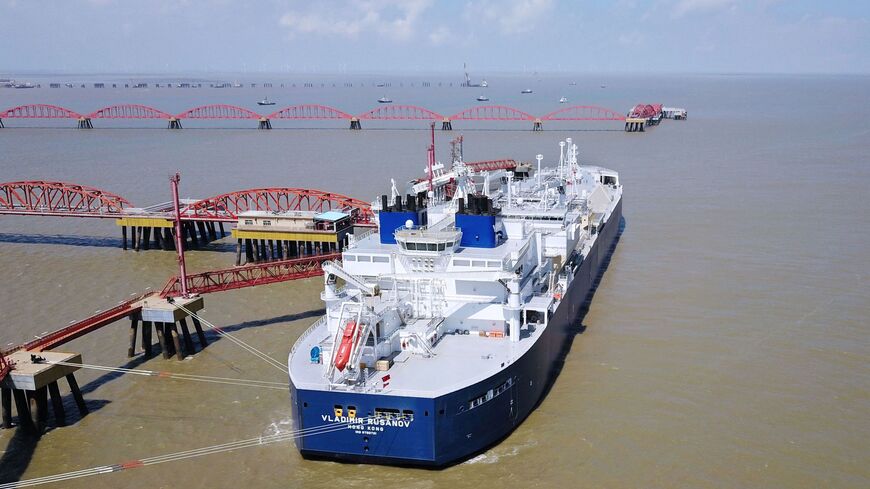Russian fuel oil imported to the Middle East rose to a record high of 280,000 barrels per day (bpd) in June, but this rise was purely opportunistic rather than a true increase in regional demand, as a sanctioned Moscow needed to replace Chinese buyers for its products, according to new data.
Chinese demand for fuel oil has been slowly making a come back since the COVID-19 pandemic when the country implemented some of the strictest lockdowns on the planet. The economic recovery of the Asian powerhouse has been sluggish, as it was one of the last countries to lift social restrictions to prevent the virus. Saudi Arabia is China's biggest supplier of fuel oil.
Russia is one of the world's major oil and gas producers, but Western sanctions due to the invasion of Ukraine have meant that the country has had to look for customers elsewhere.
A report by commodities analytics firm Kpler seen by Al-Monitor said, “Fuel oil imports typically peak around this time of year due to high demand from power generation during peak cooling months, but the increase in imports from Russia is opportunistic, following Russia’s need to replace Chinese buyers, rather than exceptional demand from the Middle East.”
India also helped offset the dampened demand from China for Russian fuel oil.
Kpler said that this was evident because Middle East fuel oil exports grew to 1.4 million bpd in June, up 340,000 bpd month-on-month and a record high for the month of June.
The demand for summer fuel had been heightened by Saudi Arabia’s recent crude production cut of 1 million bpd, the company said. Saudi Arabia has been one of the major buyers of Russian fuel oil in recent months, snapping up a record amount in June. Kpler said that Riyadh was poised to buy more “sizeable volumes” of Russian fuel oil.
Saudi Arabia’s cut means that “they're likely going to burn more fuel oil domestically for power generation, and obviously it makes sense to import cheap fuel oil from Russia,” Homayoun Falakshahi, senior oil analyst at Kpler, told Al-Monitor.
“But once the Chinese refiners rush to get their hands on the products and that peak power generation in the Middle East is behind after the summer ends, then we could see a drop in those flows from Russia,” Falakshahi added, noting that Russian refinery outputs are jumping from 4.9 million bpd in May to 5.6 million bpd in August, so the country can export more fuel oil.
China’s fuel oil imports reached a yearly high of 650,000 bpd in June, and Kpler anticipates July imports to return to normal levels as crude imports pick up pace.








